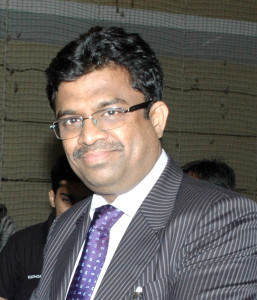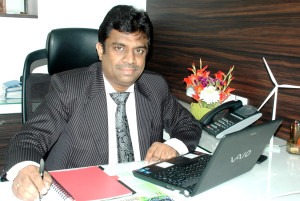 Sumit Khetan is a man in a hurry. His travel bags are always ready as is his connectivity – wired through a complex network of laptops and smart phones, for he globe trots around the world with the drop of a hat. Sometimes even before the hat hits the ground.
Sumit Khetan is a man in a hurry. His travel bags are always ready as is his connectivity – wired through a complex network of laptops and smart phones, for he globe trots around the world with the drop of a hat. Sometimes even before the hat hits the ground.
Meet the man who is at the very core of India’s quest for supply security – especially in the field of coking coal. As the nation braces herself up for her inevitable tryst with steel making, the fact that she does not have enough reserves of good quality coking coal to take her capacities to beyond 200 MMT and more is staring her on the eye. Naturally, there is a scamper for more coking coal, a commodity whose price cycles often defies logic and is capable of making or breaking conglomerates.
To complicate matters, China, the largest, producer, consumer and exporter, is slowly moving towards a controlled export regime, choosing to conserve its resources rather than feed the emerging demand from countries like India. Australia, the next major sourcing destination too has its limitations in scaling up production and exports in the short term. Emerging countries like Mozambique have their own sets of hurdles – lack of infrastructure, unproven nature of the tenements, absence of well entrenched mining companies and the like. As for other countries from where this vital raw material can be sourced the problems are a plenty – land locked mines, political disturbance, quality issues – not to mention cases where the prohibitive freight costs alone makes things unviable.
The key words then is “supply security” – assured and steady supply of quality raw materials to guarantee production of met coke to the merchant coke makers and in turn steel to the Secondary Producers. The best possible answer off course is that Indian companies go abroad and buy their own mines. “But that is easier said than done” says Khetan, “for one, you cannot buy mines off the shelf. And even if you do get the mine of your choice, you have to keep your fingers crossed till you get to be sure about the quality of your produce. For there have been cases where investors have purportedly invested in metallurgical coal mines, only to have the mines giving them poor quality stuff – high on ash and low on calorific value.”
The next alternative off course is to take a corner stone investment in an existing mining company with proven reserves whose output quality is assured. Here off-course the idea is to have the first right to the produce, with a seat in the board according its usual trappings. “But the key factor in either case is the due diligence – the homework you do before you approach the negotiating table. The price has to be right and you have to read through the maze of fine prints, consider the implications of international laws, jurisdiction of countries and the impact of financial systems within which you are operating.”
And that is what makes Sumit Khetan such a sought after commodity these days – his training as a Company Secretary, his vast experience of handling banks in almost all the continents and his ability to shift the grains from the chaff. Besides, the fact that the name Sumit Khetan has been the constant in some of the biggest acquisition plays that India Inc. has made in the realm of metallurgical coal blocks is also adding to his stature.
So what is the key to his success? How has he been so successful in raising monies from all corners of the globe? What is it that in the final analysis, sets him off at the head of the pack? “Different investors in different markets look for different risk-reward offerings. The first rule is that your product has to be good. Then comes the packaging – you cannot be everything to everyone – you have to identify the target audience and communicate your strengths and weaknesses so that they can take a value decision. Upfront honesty and the right names behind you has always done it for me” says Khetan, who is busy holding his cards real close to his heart.

